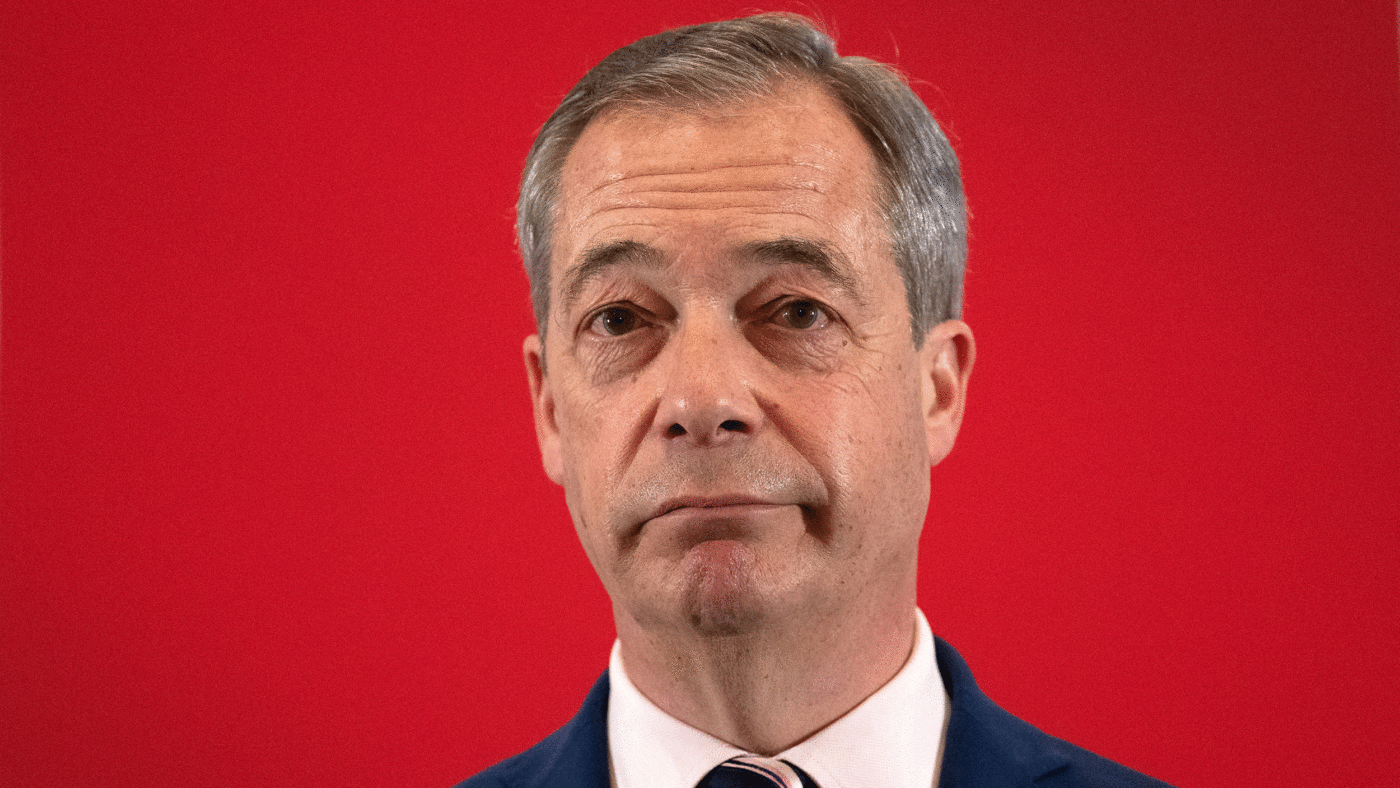News that Nigel Farage is contemplating leaving Britain after his bank accounts were closed has been met with a mixture of alarm, joy and indifference depending on how you feel about Mr Brexit. For those of us whose brains haven’t been entirely melted by the 2016 EU referendum, the story requires closer inspection. If banks are unceremoniously refusing to serve members of the public, whether it be Joe Bloggs or the latest winner of Best News Presenter at the TRIC Awards, that’s a serious development which should concern us all.
Farage took to Twitter last week to reveal his bank had phoned him to say they were closing his accounts, and gave no explanation. After complaining to the Chairman, he was told by ‘a lackey’ that it was ‘a commercial decision’. He said he has been refused a personal or business account by six or seven other banks, and that three members of his family have also had their accounts closed.
Of course, without going through Farage’s bank account – unconfirmed but widely assumed to be the prestigious Coutts, which is owned by NatWest – with a fine-tooth comb or being privy to all forms of communication between the two concerned parties, one should be cautious about coming to a definite conclusion. All sorts of reasons are being floated in this game of why-has-Nigel’s-bank-account-been-closed Cluedo. ‘I think it was Chris Bryant in the billiard room with parliamentary privilege’… ‘No, it’s woke corporations in the kitchen with a pride flag’ and so on.
The likeliest explanation is that Farage has been identified as a PEP (politically exposed person). Under the mandatory Money Laundering Regulations 2017, banks are now required to exert ‘enhanced customer due diligence’ when establishing the wealth and source of funds regarding PEPs on their books. For obvious reasons political figures are influential and could therefore be vulnerable to unscrupulous characters offering bribes or seeking to corrupt the system. This is no doubt a headache for the banks as the regulation is expensive to operate, and some have theorised that they are choosing to close accounts rather than shoulder the compliance costs.
This raises a number of disturbing questions, like who gets to decide whether a person is ‘politically exposed’, and what’s to stop this regulation being used to silence dissent.
And where does this leave the future of British politics, a career that is becoming increasingly more unattractive by the day? Not only do our elected and prospective parliamentarians have to consider their safety in order to serve but they now face losing their ability to acquire a bank account. What’s more, their own family members are at risk.
Indeed, Farage isn’t the only victim of this hyper vigilant regulation. Dominic Lawson has written that his daughter was initially refused a bank account with Barclays because her grandfather, the late Nigel Lawson, was a PEP. In addition, HSBC rejected his wife Rosa’s request to open an account for her charity, Team Domenica, because her brother is a viscount. In a parliamentary debate chaired by Sir Charles Walker in 2016, the Conservative MP Heather Wheeler said that she too has been affected when two of her bank accounts were closed with ‘no explanation whatsoever’. The former Labour MP Simon Danczuk tweeted: ‘a money transfer company recently refused to let me use its services, and I eventually found out that it was because I’m identified as a PEP’. There are plenty more.
We cannot be sure how many MPs and their immediate relatives have been impacted as, naturally, personal finances are a sensitive topic. Perhaps some have kept their stressful experiences private due to embarrassment assuming, wrongly, that their accounts haven’t been in good shape.
But dig deeper and there’s another sinister layer to this story. This isn’t just a problem for PEPs. Thousands of customers are complaining that NatWest – which the public still owns a 38.6% stake in – is treating them like criminals for no apparent reason. A Facebook group called ‘NatWest Closed Down My Account’ has over 5,000 members, many of them frightened, confused and exasperated by the bank’s heavy-handedness. People have had accounts closed without explanation, access to money frozen and sometimes been unable to find a provider elsewhere afterwards. In a cost of living crisis, suddenly being blocked by your bank doesn’t bear thinking about. It would be good of Nigel Farage self-styled ‘man of the people’ to draw attention to their plight, but in the world of tribal social media politics perhaps their politically neutral testimonies aren’t as clickbaity.
Yet it would be wrong to suggest banks haven’t been used as a weapon against those who don’t toe the line when it comes to ‘acceptable’ views. Nor that they don’t choose to use their firepower when it suits them. You only have to look at Canada in 2022 when Justin Trudeau introduced emergency measures to freeze the finances of anti-vaccine mandate protesters. And in recent days an Anglican church leader has accused the Yorkshire Building Society of closing his account when he protested against it allegedly pushing trans ‘ideology’.
One thing is for certain: in 2023 it is unreasonable to expect anyone to be without a bank account. Whether abrupt closures are because of extreme risk aversion or a conflict of values, restricting someone’s ability to function in an increasingly cashless society is immoral and dangerous. People on both the left and right should, for once, be united in condemnation.
Click here to subscribe to our daily briefing – the best pieces from CapX and across the web.
CapX depends on the generosity of its readers. If you value what we do, please consider making a donation.


